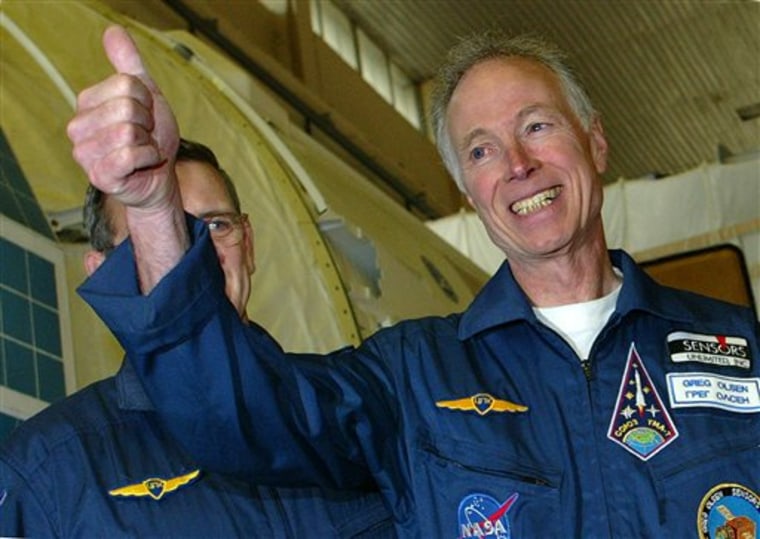U.S. millionaire Gregory Olsen joined a Russian cosmonaut and an American astronaut for training outside Moscow Friday in preparation for their Oct. 1 launch to the international space station from the Baikonur cosmodrome in Kazakhstan.
Russian cosmonaut Valery Tokarev and U.S. astronaut William McArthur, who are to spend six months at the station, will be accompanied on their flight by Olsen, a scientist who is paying the Russian space agency $20 million for a weeklong visit.
Olsen told reporters at the training complex in Star City, outside of Moscow, that he was looking forward to "the joy of being in space, weightlessness and so on."
"I still hope to bring my infrared camera on board and to share the experience with kids," he said.
Asked if the price of the trip was worth it, he replied: "I'll let you know when I come back."
Olsen, a 60-year-old scientist and co-founder of a New Jersery-based infrared camera maker, will become the third paying passenger to visit the space station after American Dennis Tito and South African Mark Shuttleworth.
McArthur said he welcomed Olsen's presence on the flight.
"Valery (Tokarev) and I have done a significant amount of training just as a two person crew and so integrating a third person for us just gives us more capability and we're very confident that having Greg with us even in an emergency will be an asset," he said.
Tokarev and McArthur will replace Russian cosmonaut Sergei Krikalev and U.S. astronaut John Phillips, who have been on the station since April.
The grounding of the U.S. shuttle fleet following the 2003 Columbia disaster had left the Russian Soyuz ships as the only way to ferry supplies and crews back and forth to the space station.
NASA resumed shuttle flights in July with the Discovery mission, but efforts to prevent foam insulation from falling off shuttle fuel tanks has cast doubts on whether the next shuttle flight will happen as planned next year.
